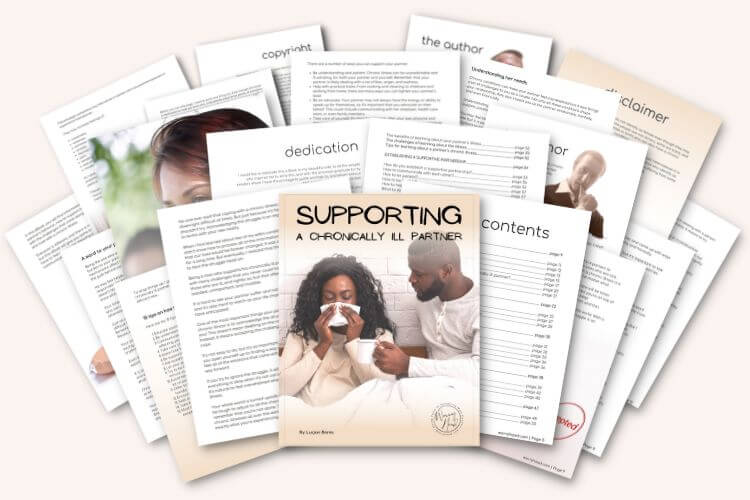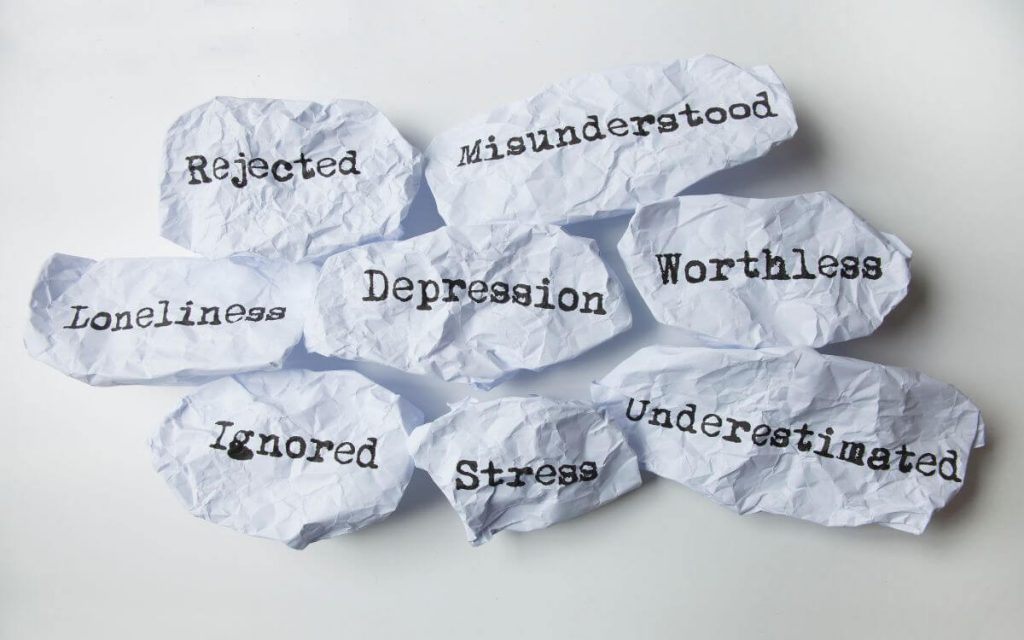Why my partner’s chronic illness makes me distant?
It’s hard to see the person you love suffer from a chronic illness. It can be even harder when you feel like you can’t do anything to help them. This can sometimes lead to feeling distant from your partner. By asking “why my partner’s chronic illness makes me distant” you are acknowledging that this is a difficult situation.
Chronic illness can put a lot of stress on a relationship:
- The sick person may feel like they are a burden to their partner. They may also feel like they are not getting the support they need. The ill person may become withdrawn and the healthy partner may feel like they are constantly taking care of them. This can lead to resentment and feeling distant from each other.
- The healthy partner may feel like they are walking on eggshells. They may also feel like they are not being heard or understood. Being healthy can feel like a burden if the sick partner is always needing something. It’s important to remember that chronic illness is not the person’s fault.
It’s important to talk about how you’re feeling with your partner. If you’re feeling distant, try to express why. Maybe you feel like you can’t do anything to help them. Maybe you’re feeling overwhelmed and need some time to yourself. Whatever the reason, it’s important to communicate.
Quick tips on what to do!
Chronic illness can take a toll on any relationship, but it doesn’t have to mean the end of your connection. There are ways to stay close despite the challenges.
If you’re feeling distant from your partner because of their chronic illness, here are a few things that might be helpful:
Talk about how you’re feeling: It’s important to communicate with your partner about what’s going on for you. They may not be aware of how their illness is affecting you emotionally. Talking openly can help you both understand each other’s needs and find ways to support each other.
Seek out social support: When dealing with a chronic illness, it’s important to have a strong support system. This can be friends, family, or even a therapist. Talking to someone who understands what you’re going through can be helpful.
Take care of yourself: It’s also important to take care of yourself. Make sure to schedule time for activities that make you happy and take care of your own health. This will help you feel better equipped to handle the stress of your partner’s illness.
Keeping the lines of communication open is key to maintaining a close relationship with your partner, even when chronic illness is a factor. By talking about your needs and taking care of yourself, you can help keep your bond strong because without communication, it’s easy for the distance to grow.
If you’re feeling distant from your partner, reach out and start a conversation today.
If you want to learn why your partner’s chronic illness makes you distant, how to cope with it, how to support her, and how to manage a relationship with a chronic condition, I give away a FREE Chapter of my eBook: “Supporting a Chronically Ill Partner”.
This chapter alone has all the comprehensive information about acknowledging the struggles, including:
- A word to your partner.
- A word to you.
- Stepping on eggshells.
- Understanding her needs.
- How to acknowledge having a chronically ill partner?
- Acknowledging can be hard.
- 15 tips on how to do it!
Get the 1st Chapter FREE!
Chronic Illness for Partners

How does chronic illness affect emotionally?
Emotions are a tricky thing. They can be so strong and all-consuming that we can feel like we’re being swept away by them. But at the same time, they can be so subtle and nuanced that we can barely register them. So it’s no wonder that chronic illness can have a big impact on our emotions.
For me, the biggest emotion I feel is distance. Sometimes, my wife’s chronic illness makes me feel distant from her. It’s not that I don’t love her or care about her, it’s just that I can’t help but feel like there’s a big gulf between us.
I think part of it is that chronic illness can be so isolating. When you’re dealing with a chronic illness, it can feel like you’re the only one in the world who knows what you’re going through. And that can make it hard to connect with other people, even the people who are closest to you.
But I also think that the distance I feel is about more than just isolation. It’s also about fear. I may feel afraid of what the future holds for my partner. I can be afraid of how their illness will progress and how it will affect our marriage.
I know that I need to be there for my wife, but sometimes it feels like I’m just holding on tight, trying not to let go. And that can make me feel like I’m holding my partner at arm’s length.
I know I need to work on this. I need to find a way to bridge the distance that I’m feeling. But it’s not easy. Chronic illness can put a strain on even the strongest of relationships. But with understanding and patience, I know we can get through it.
How does chronic illness affect mentally?
Chronic illness and mental illness often go hand-in-hand. Mental illness can be caused by chronic illness, and vice versa.
Chronic illness can take a toll on your mental health for a number of reasons. The physical symptoms can be debilitating, and the financial burden can be overwhelming. It can make it difficult to maintain relationships or keep a job.
The stress of chronic illness can lead to anxiety, depression, and other mental health disorders such as Obsessive-Compulsive Disorder. My wife suffers from all of them. The mental health effects of chronic illness can be just as debilitating as the physical symptoms.
Take for instance endometriosis that my wife suffers from. It’s a chronic illness that can have a major impact on her mental health. The physical pain can be so severe that it’s hard to concentrate on anything else. The anxiety and depression that come with the illness can make it difficult to function in everyday life.
The same applies to another condition my wife suffers from – fibromyalgia. This illness is characterized by chronic pain and fatigue. The mental health effects of this illness can be just as debilitating as the physical symptoms. Fatigue alone can make it difficult to focus on anything else.
When you’re dealing with chronic illness, it’s important to pay attention to your mental health. When chronic illness causes mental health problems, it’s important to seek professional help.
If you’re struggling to cope with the mental health effects of chronic illness, talk to your doctor or mental health professional. They can help you develop a plan to manage your symptoms and improve your quality of life.
My wife and I have been married for 10 years now. When we met, she was already suffering from her chronic illness but she didn’t have a diagnosis. I knew that something was wrong but I didn’t know the scale of it and why it would be a challenge, but I loved her and I was willing to do anything to help her.
However, over the years, I’ve found myself feeling more and more distant from her. I couldn’t help but felt like I had to take care of a sick person, rather than my wife. The physical and emotional toll of her illness has taken its toll on me. But that feeling did not last…
I often found myself wondering why I was still with her. I loved her, but I couldn’t help but feel like I was sacrificing my own happiness for hers. I know that her illness is not her fault, but I couldn’t help but feel resentful at the time. Today is different!
I try to be understanding and supportive, but some days I just can’t help but feel angry and frustrated. I know I need to be there for her, but I can’t help but feel like I’m losing myself in the process.

Why my partner’s chronic illness makes me distant?
Give 10 reasons why your partner’s chronic illness can make you distant:
- The physical symptoms of the illness can be debilitating and overwhelming.
- The financial burden of chronic illness can be difficult to manage.
- The stress of chronic illness can lead to anxiety, depression, and other mental health disorders.
- Chronic illness can make it difficult to maintain relationships or keep a job.
- The mental health effects of chronic illness can be just as debilitating as the physical symptoms.
- Fatigue from chronic illness can make it difficult to focus on anything else.
- When you’re dealing with chronic illness, it’s important to pay attention to your mental health.
- Chronic illness can cause mental health problems, which can impact every area of your life.
- If you’re struggling to cope with chronic illness, talk to your doctor or mental health professional.
- The physical and emotional toll of chronic illness can take its toll on caregivers as well.
Having a chronic condition is unbelievably hard, but being someone who cares for them can be just as difficult. From feeling like you have to put your own life on hold, to struggling with the guilt of not being able to do more, it’s easy to see why chronic illness can make caregivers feel distant from their loved ones.
But you don’t have to put your life on hold – this very blog is evidence of that! You can still have a rich, full life even while caring for someone with a chronic illness. It’s important to find ways to do it but it can be done!
Don’t give up on yourself or your relationship just because chronic illness is a part of your life. Seek out support, find creative solutions, and be patient. Your relationship can weather this storm.
Take care!


About Me
Hi, I’m Lucjan! The reason why I decided to create this blog was my beautiful wife, who experienced a lot of pain in life, but also the lack of information about endometriosis and fibromyalgia for men…
